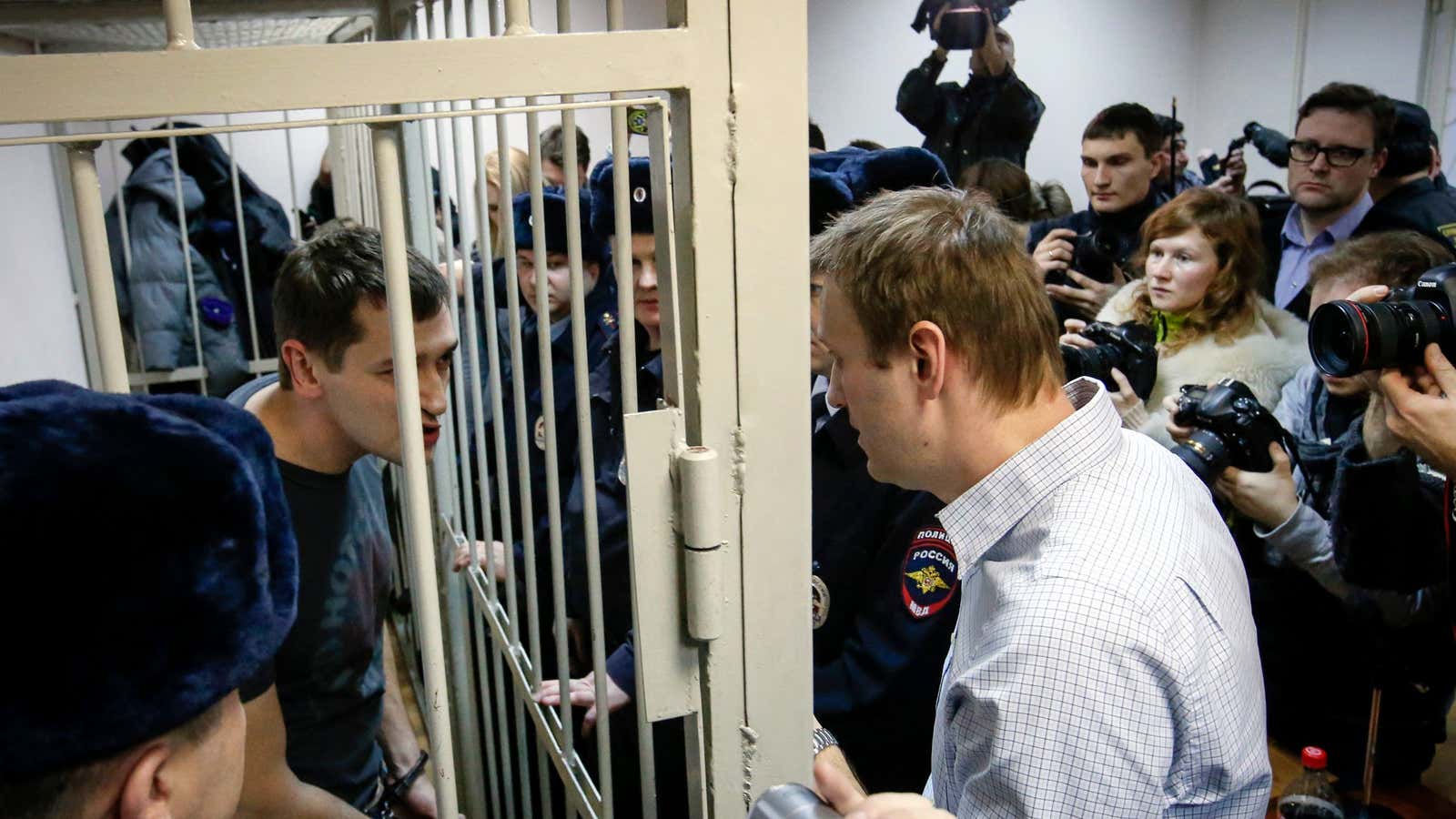The latest development in Russia’s neo-czarist trend comes with news that courts there have imprisoned the apparently apolitical younger brother of opposition leader Alexei Navalny, in what seems like an effort to ensure his good behavior.
Navalny had been appealing his conviction for allegedly stealing $500,000 from a state-owned business, charges that many observers believe were trumped up in response to his political activism. In a surprising twist, Navalny was freed, but his younger brother Oleg, a postal worker, was imprisoned for three and a half years.
A consensus among outside observers is that this represents an attempt by Vladimir Putin’s regime to use Navalny’s brother as a hostage to control the activist, without turning him into a potent political symbol.
While Putin’s regime has acted frequently to imprison his political opponents in the past to prevent them from undercutting his power, this appears to be the first time it has imprisoned the family member of an activist. The increasingly authoritarian bent of Putin’s Russia comes as Western economic sanctions put serious pressure on the country’s economy, which entered a recession in November for the first time in five years.
But taking hostages from the family of political rivals was a common practice in Europe during the Middle Ages and indeed in feudal societies around the world. A political leader would demand high-ranking captives, often the sons of lesser nobles, as evidence of their good faith in pledging him their allegiance, or take hostages to ensure safe passage or a truce during wartime. Hostages served as guarantees for international treaties.
Of course, today, international treaties ban hostage-taking, but Putin’s stance on post-Westphalian relations between nation states has been clear since Russia annexed Crimea earlier this year.




